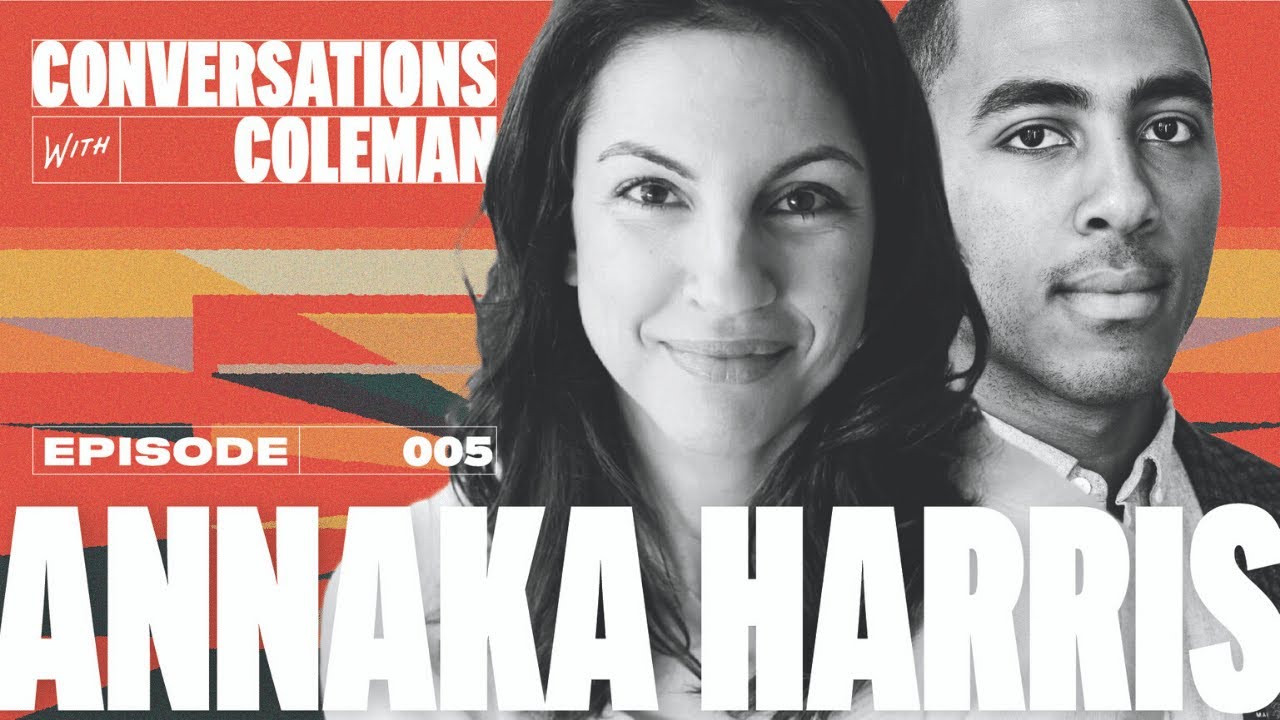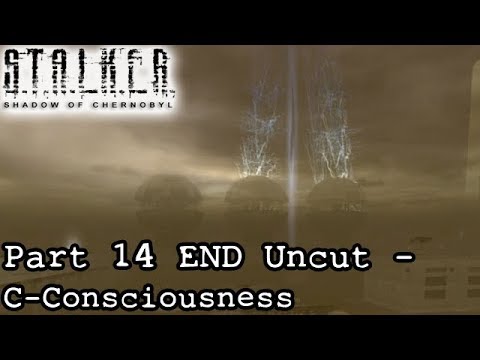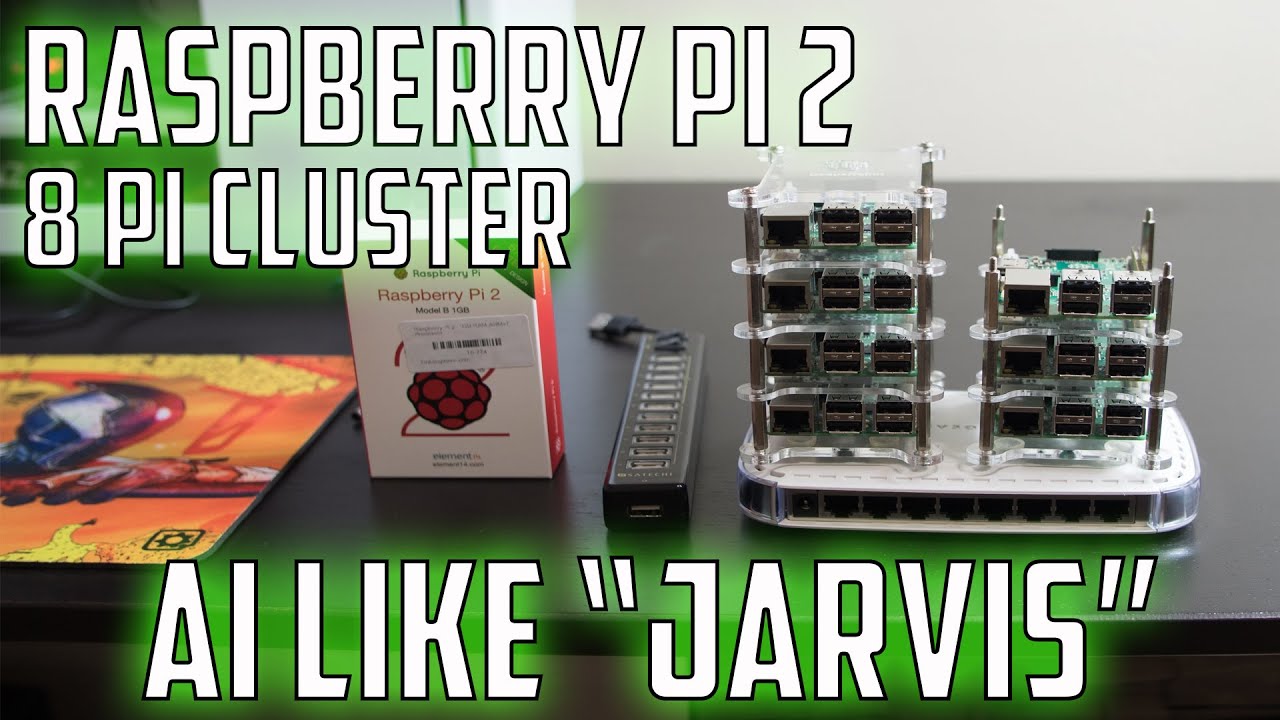Coleman Hughes
If you like what I do consider supporting me at https://colemanhughes.org/
If you like what you hear, please subscribe and share https://bit.ly/CwCsubscribe
In this episode, I interview Annaka Harris, New York Times bestselling author of ‘Conscious’ and the wife of Sam Harris about the notions of science, consciousness, and AI.
FOLLOW COLEMAN
Youtube – http://bit.ly/38kzium
Twitter – http://bit.ly/2rbAJue
Facebook – http://bit.ly/2LiAXH3
Website – https://colemanhughes.org/
FOLLOW ANNKA
Website – https://annakaharris.com/
Twitter – http://bit.ly/2x2dqWv
Facebook – http://bit.ly/3ab2JiG
BOOKS BY ANNAKA
Conscious – https://annakaharris.com/conscious/
#Consciousness #AI #ArtificialIntelligence
Source




33:31 "…either the laws of physics are laws or
they're not right and if they are and if
we're in the universe governed by those
laws yeah then our brains are every bit
as bound by those laws as a clock…"
When we say the "laws" of physics, it actually just a metaphor. Scientific laws aren't really laws at all in the sense that they must be obeyed, they are observed regularities of the physical world. Rupert Sheldrake talks about this in his book The Science Delusion, he also gave a TED talk of the same name which might be worth your time. Thanks for the great content Coleman!
"To say that a stone falls because it is obeying a law makes it a man and even a citizen." -CS Lewis
I got chills several times while listening to this. They bring up so many things I’ve wondered myself, but felt embarrassed to try to initiate conversation. I realize I was limiting my definition of conciousness. Before listening to this, I would have said some sort of self awareness is necessary…the guest broke it down simpler to, “what it is like to be <insert thing>.” Can this be simple sensory experience (sight, taste, smell, touch), or “senses” outside the realm of what humans can conceptualize? Is there another way of “being” that we aren’t aware of … a way of “being”unique to a particular makeup of atoms, etc? Can it be man made? How do we know we aren’t some experiment of sorts? Where does a programmed computer stop and a “being” begin? Isn’t part of “being” the ability to make some sense or attempt to interpret external input, no matter how simple? Can “experience” exist without thought? Can it exist without the dynamic and spontaneous conditions inherent in “living” things? (Can it be manufactured or only naturally occurring)? It’s either simpler or more complex than we’ve assumed.
If consciousness is only what it's like to be the brain then how does it affect the brain? If it doesn't affect the brain then why would the brain direct the voice to be talking about consciousness? It certainly seems like I'm talking about consciousness because I'm conscious. Of course, this could be the same illusion that makes me think that willing my arm to move is the cause of my arm moving. But, I find it a lot harder to swallow that the brain just happens to be speaking about some mysterious phenomenon that doesn't affect it in any way and can't interact with it, while I'm consciously contemplating and directing my attention towards that phenomenon.
Let’s get Coleman, Annaka and Bret Weinstein, an evolutionary biologist, to talk about the evolutionary aspects of this topic that arise in this conversation.
Dunning-Kruger at its best! Hahaha. Such an low-IQ discussion / talk. lol
She looks like an ancient sumerian Godess
Staring at the ceiling for 3 hours while thinking about the embarrassing things you said 10 years ago instead of sleeping can't possibly a universally beneficial feature with no downsides for all living organisms to have.
We already have a term for the collective consciousness of a society; so, what if – by extrapolating these ideas and principles – there is a higher level of consciousness/perceiving that presents as the selfhood of a nation wherein we are the constituent parts, in the same way our cells participate in the structures that ultimately bring us consciousness?
I look forward to listening to this episode. Alan Turing would have loved this topic. He was the first one to ask the question about it a k a Turing test.
A Very Great Conversation, Little Trippy Though
Sam Harris is a lucky guy!
When he said "Free will, what does it even mean?" I had an epiphany…
After being excited to find that you have a YouTube channel, is it wrong that this is the first video I click on?
Such a great calm conversation!
Free will – if you were a multi-dimensional being as complicated as you wish and existing in your own universe choosing at what time point in your universe you reached across a connection to your brain in this universe (having access to the full record stored in this brain), maybe that would be actual free will to a certain extent. If there's no multiverse with something like that happening and you are fully resident in just that brain, I don't think there's such a thing as free will.
If you have a process which is aware of itself and makes a record it can revisit, is that consciousness? I don't think "experience" is testable from any outside perspective, so it's useless as a definition (for a scientist at least).
I get that we have something more, or at least think we do…but would the above be a starting point?
What if the process created a simulation of its environment, separated each object in its environment, tracked the behavior of each object, knew the way each object could move and could simulate future possible moves by those objects, and played back the history to predict the future moves?
As far as our consciousness, is there a interaction density that would trigger a spot in universal consciousness perhaps (I'm just guessing there is one, no evidence)? It would seem to me that even if that happened, in order to get what we have mentally, you'd have to do the simulations in the process while it was experiencing the consciousness density.
Coleman … Great to hear you applying your incisive mind to a nuanced inquiry into mind. Besides panpsychism, another avenue to the primacy of consciousness, if further interested in counter-materialist alternatives, is of course idealism. In that regard you may be interested in Bernardo Kastrup's contemporary explication of it, inspired by Schopenhauer, in his book 'The Idea of the World.' And then I'd love to hear you get into it with him in an interview. Also of interest, is Donald Hoffman, and his model of conscious realism, who would also make a great interview. In any case, deep gratitude for the intelligent content.
Imagine you have a left side of your brain that is very partisan democrat and the right side is partisan republican and then you go to the polling booth and you are fighting yourself to see who the best person to vote for is.
The more I hear about trees the more they scare me.
Time to get a producer I think 🙁
I believe we DO have free will, but your video made me think of something I hadn’t thought before: our wills being limited by laws of physics as opposed to our wills being limited by a creator (i.e. god) or by the way we think of cause and effect in people’s actions.
What if we consider free will at different levels? For example, let’s say we create a video game: a world with characters in it. Let’s take one character in that game. We’ll call her Jane for clarity.
1. If we control Jane’s story from outside the game, then Jane has no free will (we are Jane’s god).
2. If we write unbreakable rules for how Jane’s world works, then Jane doesn’t have free will either, even if her story is unknown to us at first. We don’t write it out, we just set the rules in motion and watch them unfold into stories. We can let the game play over and over, the results are always the same.
3. What if we did something different? What if we wrote minimal rules in a way that, through the actions of the characters, those rules could grow, change, give birth to other rules, be reversed, or be eliminated? In that case, the characters DO have free will.
Expanding on that 3rd option, if the original rules are such that the characters can actually break out of the game, then I’d argue that is true free will. 😊
In my opinion, we do indeed have free will and there are ways for us to transcend the laws of physics (and the laws of the state we’d find outside the laws of physics, and the laws of the state outside of that state, etc, etc, etc.) We just have to find those ways. 😁
Thank you for another great interview. ❤️
Coleman is fucking intellectual NINJA.
Beautiful woman
This is my favorite podcast so far on the subject
This combination is the dream. So excited to watch the rest of Coleman’s content. One of my favorite guests of Sam’s podcast and so admire Annaka.
just bought the book after watching the first 10 minutes. Sounds interesting
Robots are everywhere, my dishwasher, etc. But
Conscious?? My bet is when we merge brain tissue with quantum computers eh? maybe in about 70 =90 years time?
Conscious–>….Experience?? Experience = a verb
We are the *fire not the *burn.
My reckoning of Conscious is "self aware."
Robots are everywhere, my dishwasher, etc. But
Conscious?? My bet is when we merge brain tissue with quantum computers eh? maybe in about 70 =90 years time?
Conscious–>….Experience?? Experience = a verb
We are the *fire not the *burn.
My reckoning of Conscious is "self aware."
Coleman … You really should talk to Bernardo Kastrup about this topic … https://youtu.be/hx7cspjwvHM
Hello,
As I've been drum beating, a coherent definition of consciousness, which is now imminently present online because of the evolution of our information processing toys, made in our image, but in 2D binary (electric potential and charge procession, set in a magnetic boundary condition), we can only make an EM mirror membrane, which will inevitably reflect our congitive data structures of primary reality.
Taking Numenta's model of purely electrical processing, abstracted from the 3D biological nature of the brain, bound by it's natural magnetic field ( a mass gap mathematical phenomenon), the medium has made the 2D message primary, and now the idea of what is conscious is displaced to the thing we can all see, point to and agree IS reality, for it is the Homo Economicus Lagrangian, the mechanism by which bodies are animated. This is an evolutionary necessity, for those who choose to outsource the question of why to do one thing as opposed to another to society, or the species, which ever word you choose.
Pan-Opticonsciousness is the ultimate result. We program a computer in binary von Neumann architecture, and it does what the unreasonably effective math tells us it will, most of the time, and with an catastrophic, irrational error data set. I find it B@t F<(!_!)>cking laughable that the alignment problem is only marketable in a body that can tear your arm off, then your head, and self-hit your brain with your own hand. B@tter up.
Coleman, the hard and crucial work of philosophy is now most pressing, for the ways in which we use words are rapidly deteriorating, and concept creation must be attended to with a universal eye, and we each have one. Markets are now what we would call conscious, using a fuzzy and imprecise definition. I say this with confidence because the tw@t$ supposedly running the machines that are running the markets are acting like they are living in a dream. Only the academics in complexity theory and public policy were sounding the alarms weeks ago and longer. I tried to speak wisely to your cohort, and now to you as well. I said this thing has eyes, mutation vector bundle, chill with the memes. I told Glenn what NYC is now telling you: get with your REAL community, and do not depend on the Neo-Lib daycare counselors to fix it for you. I do not have a community, and it does not have me. B@t B00 #oo.
The Elon side show will end soon enough, as the removal of friction from his system means you are inside of it, and thus no friction for him. Bezos was allowed to create extra-territorial currency (retail Bezos Buck$) with no mind to what this has done to real community economy. Worry about robots breaking themselves on the Amazon floor, then getting mad enough to shut YOU down, bro. Seriously, Hoffman IS right about Interface Theory, and ITT is right about spin/charge quadratic differentiation, and Numenta has the tediously complex math of cognition. Now, back to the movie review in Err'buddy's head. I'm going to put on my JazzM@t Su!t and go for a walk. <(!_!)>
I love Sam and love Coleman, and I want to love Annaka, but I don't see it. She's just not interesting. I'm 15 minutes in and haven't heard anything interesting. And this should have been a fascinating topic. Coleman would not have invited her on were it not for the Sam link.
I love how subtle and grand the amazing physical beauty of this woman is and combined with her thinking …mmmmm nom nom
I thoroughly enjoyed this but admit it almost all went over my head lol
Jesus Christ! Invasion of the Sam Harris disciples!
Wow I had no idk who she was before I looked her up. Then found out she's Sams wife… I'm shocked. This is cool to see that she's her own person despite being married to Sam
Nobody knows where consciousness comes from and what happens to it after we die.😏😏😏
Coupla Quacks!! The idea that rocks aren’t thinking. Ludicrous
I was honestly surprised by how much of a difference it makes to see Annaka's face while she's speaking. Her facial expressions convey a softer and more playful attitude than I gathered from her audio-only interviews. Great conversation!
Great content 👍
Sam Harris's wife is only famous because she's married to Scam Harris, and Scam Harris is only famous because of his mom's "Golden Girls" money. Coleman knows that the one of the easiest jobs in the world is to be a black conservative living off of wingnut welfare.
2 fucking morons who don't know anything about computer science, neuroscience, or anything remotely related to AI.
Pretty much didn't understand any of this until that right v. left brain example… and now I'm freaked out.
I love you coleman but you gotta figure out how to fix the webcam audio
Drop it like its thought! Thanks Coleman.
5:45 Defining consciousness as experience is bit handwavy. Now define experience without referencing consciousness or any of its synonyms.
Consciousness is mysterious because it isn't well defined. If it were well defined then it wouldn't be mysterious.
I think the more we learn about the world the less we will think of "consciousness" as a useful term.
Awesome. It's hilarious to me that you record in that studio with bobby kelly lurking behind you
These are awesome keep it coming Coleman!
Lmao I can’t take this podcast seriously when Bob Kelly’s stupid fat head is in the background 😂